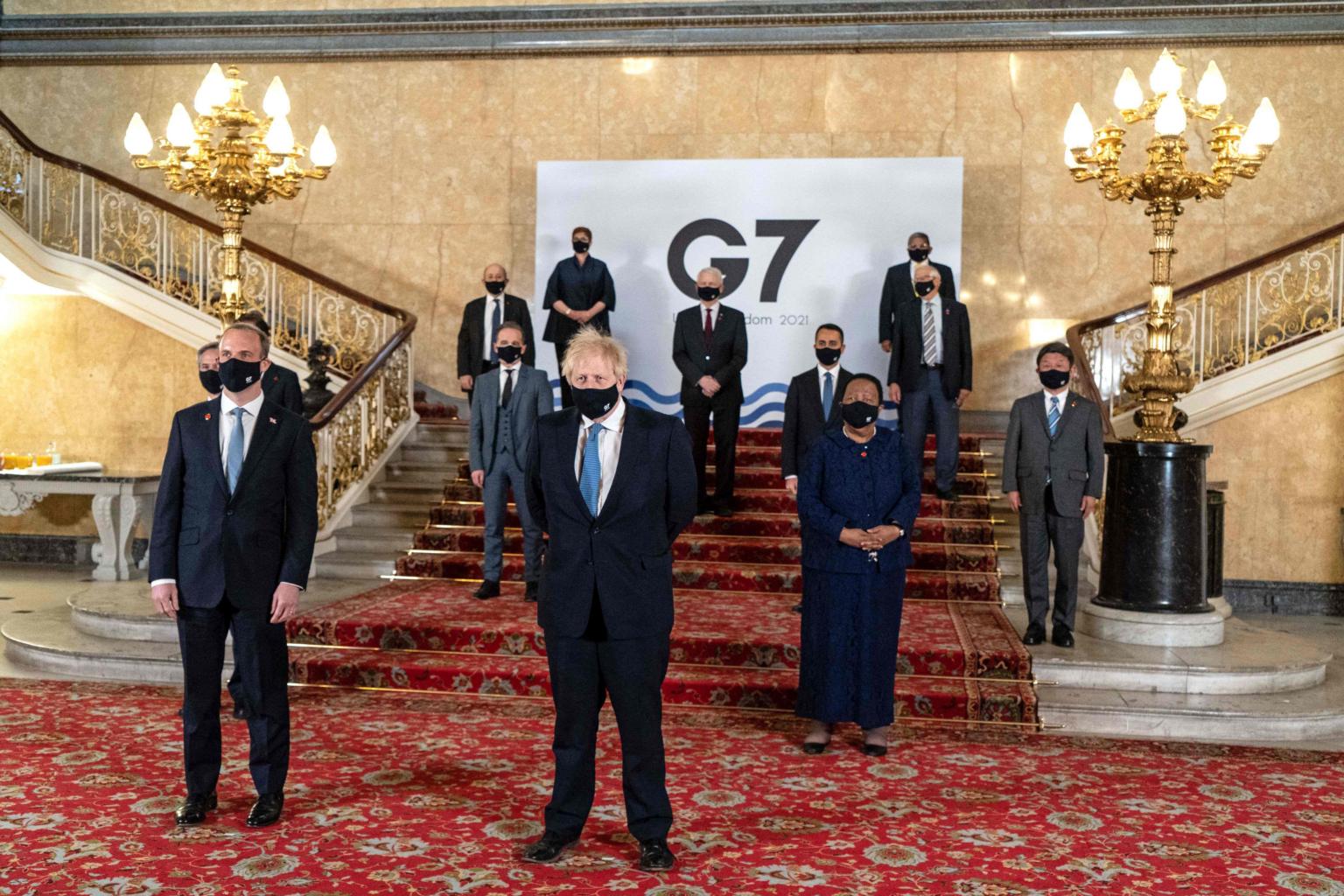China condemns G-7 statement censuring Beijing, as Blinken expresses caution on investment
Sign up now: Get insights on Asia's fast-moving developments

British Prime Minister Boris Johnson with other delegates during the G-7 foreign ministers' meeting in London on May 5, 2021.
PHOTO: AFP
Follow topic:
BEIJING (REUTERS) - China condemned on Thursday (May 6) a joint statement by Group of Seven foreign ministers that expressed support for Taiwan and cast Beijing as a bully, saying it was a gross interference in China's internal affairs.
G-7 foreign ministers said in a communique after a London summit that China was guilty of human rights abuses and of using its economic influence to bully others.
In an unusual step, the G-7 also said they supported Taiwan's participation in World Health Organisation forums and the World Health Assembly - and expressed concern about "any unilateral actions that could escalate tensions" in the Taiwan Strait.
Speaking in Beijing, Chinese Foreign Ministry spokesman Wang Wenbin said the statement made "groundless accusations" that were a gross interference in China's internal affairs, which it firmly condemned.
The G-7 as a group should take concrete action to boost the global economic recovery instead of disrupting it, he added.
China regards Taiwan as its own territory and opposes any official Taiwan representation on an international level. China has also stepped up military activities near Taiwan in recent months, trying to assert its sovereignty claims.
The G-7 statement was warmly received in Taipei, where the government said this was the first time that the foreign ministers had mentioned the island in their joint communique.
Taiwan's Presidential Office thanked the G-7 for its support.
"Taiwan will keep deepening the cooperative partnership with G-7 member countries, and continue to contribute the greatest positive force to global health and people's well-being, as well as the peace, stability and prosperity of the Indo-Pacific region," said spokesman Xavier Chang.
China's statement comes as United States Secretary of State Antony Blinken said the West had to be very careful about the exact nature of Chinese investment in Western economies and think very carefully about investments in strategic assets.
China's spectacular economic and military rise over the past 40 years is among the most significant geopolitical events of recent history, alongside the 1991 fall of the Soviet Union that ended the Cold War.
The West has struggled to come up with an agreed policy on China and has flip-flopped over the years from seeing China as a lucrative source of investment - for example in US government bonds - to seeing China as a threat to global stability and avoiding its 5G technology.
Asked by the BBC if the West should pull back from Chinese investment, Mr Blinken said the US was not trying to hold China back or contain it, but that the West wanted to uphold the rules-based international order formed after World War II.
"I think we have to be very careful about exactly what the nature is of that investment," Mr Blinken told the BBC in an interview when asked about the huge amounts of Chinese investment in the West.
"If it is investing in strategic industries, strategic assets, that's something that countries need to look at very carefully."
He added, though: "Another thing is to say: 'We're not doing any business'. That's not what we're saying."
While China's re-emergence has concerned the West, China was for centuries one of the most influential economies on earth.
Chinese per capita income was higher than that of Europe from the 10th century to early 15th century, and it was the world's biggest economy for several centuries thereafter, according to the Organisation for Economic Cooperation and Development.

